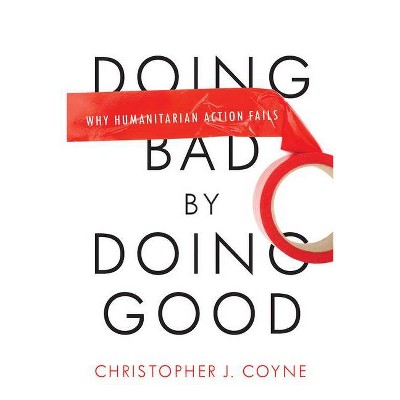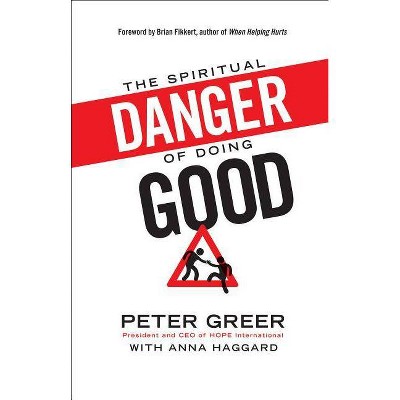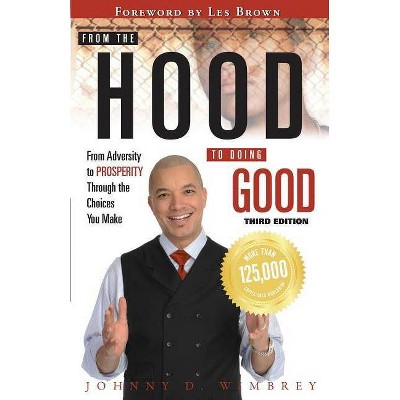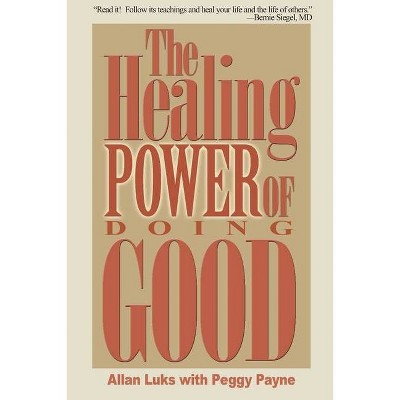Doing Bad by Doing Good - by Christopher J Coyne (Paperback)

Similar Products
Products of same category from the store
AllProduct info
<p/><br></br><p><b> About the Book </b></p></br></br>Using an economic toolkit, <i>Doing Bad by Doing Good</i> explains why humanitarian efforts that intend to alleviate human suffering fail to succeed, and often cause more harm than good.<p/><br></br><p><b> Book Synopsis </b></p></br></br>Using an economic toolkit, <i>Doing Bad by Doing Good</i> explains why humanitarian efforts that intend to alleviate human suffering fail to succeed, and often cause more harm than good.<p/><br></br><p><b> Review Quotes </b></p></br></br><br><i>Doing Bad by Doing Good</i> is an accessible treatment of a major foreign-policy problem from a perspective that could even inform the actions of churches and other Christian organizations involved in international aid and development....Coyne's research is thorough, as evidenced by the dozens of pages of sources, and one hopes that governments and other humanitarian activists will avail themselves of it before embarking on future projects.--Jason E. Jewell "<i>Journal of Faith and the Academy</i>"<br><br>Coyne attempts to explain why conventional approaches to humanitarian aid and longer term economic development have failed miserably . . . Recommended.--M. Q. Dao "<i>Choice</i>"<br><br>Coyne is to be congratulated for a book that strongly calls into question the conventional wisdom that we must look first to government to accomplish humanitarian ends.--George Leef "<i>Regulation Magazine</i>"<br><br>Coyne offers a classic neo-liberal economic analysis to explain why the humanitarian project in its current state is doomed.--Zoe Cormack "<i>Times Literary Supplement</i>"<br><br>Coyne's message is desperately needed within the development community. He develops a systematic theory that enables us to better understand foreign intervention, expertly revealing its application in a wide range of countries over time.--Benjamin Powell, Professor of Economics "Texas Tech University"<br><br>If you seek to assist people in need because of chronic poverty or natural calamities, steer clear of government aid programs and provide the assistance directly or via private organizations. Government aid programs have a proven record of failure, which is not coincidental, but systematic, owing to faulty knowledge and perverse political incentives. Christopher Coyne's new book provides the relevant facts and analysis to understand this important matter.--Robert Higgs, Senior Fellow in Political Economy "The Independent Institute"<br><br>Insanity has been defined as doing the same thing over and over again and expecting a different result. Bringing public choice and Austrian economics to bear, Coyne explains why conventional approaches to humanitarian aid and longer-term economic development have failed miserably--and how to avoid repeating the same mistakes.--William F. Shughart II, J. Fish Smith Professor in Public Choice "Utah State University"<br><p/><br></br><p><b> About the Author </b></p></br></br>Christopher J. Coyne is the F.A. Harper Professor of Economics at George Mason University and the Associate Director of the F. A. Hayek Program for Advanced Study in Philosophy, Politics, and Economics at the Mercatus Center. He is the author of <i>After War: The Political Economy of Exporting Democracy </i>, coauthor of <i>Media, Development, and Institutional Change</i>, and coeditor of <i>The Handbook on the Political Economy of War</i>.
Price History
Cheapest price in the interval: 20.99 on October 27, 2021
Most expensive price in the interval: 20.99 on November 8, 2021
Price Archive shows prices from various stores, lets you see history and find the cheapest. There is no actual sale on the website. For all support, inquiry and suggestion messages communication@pricearchive.us



















